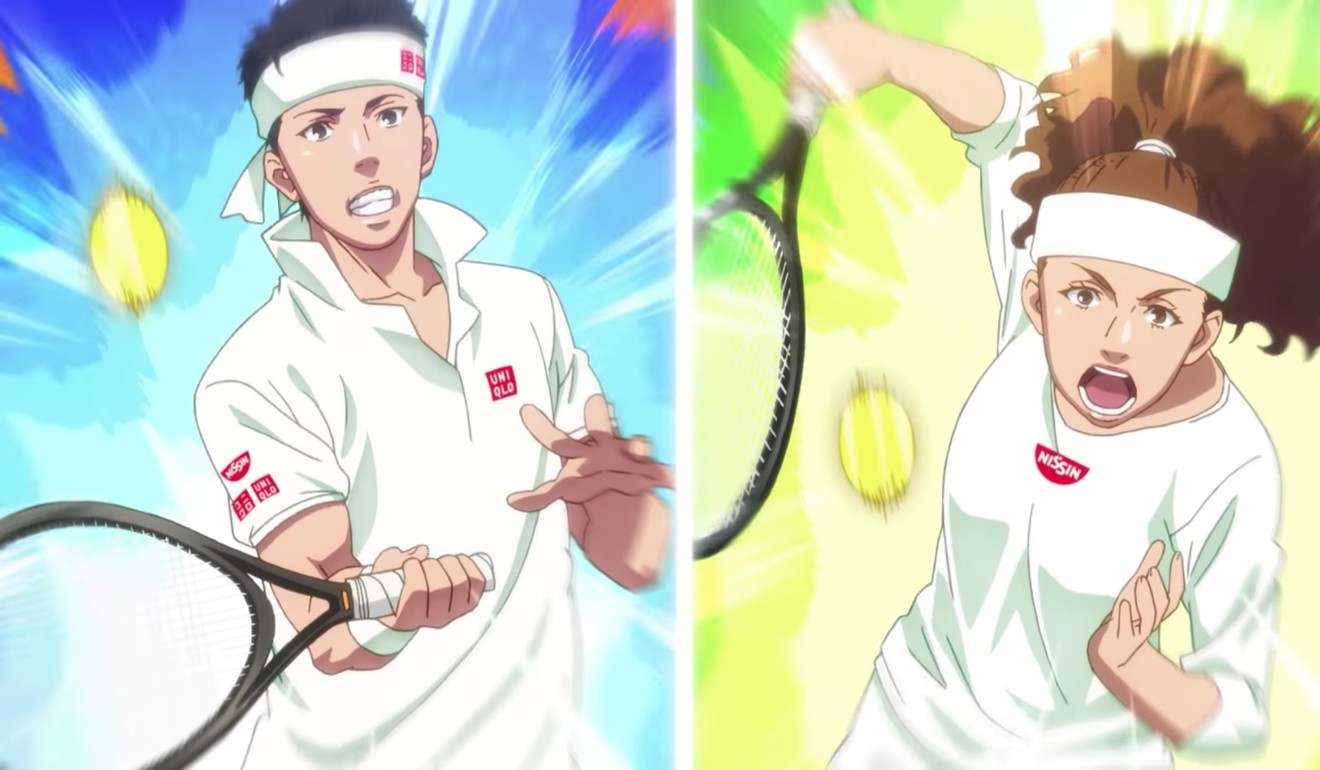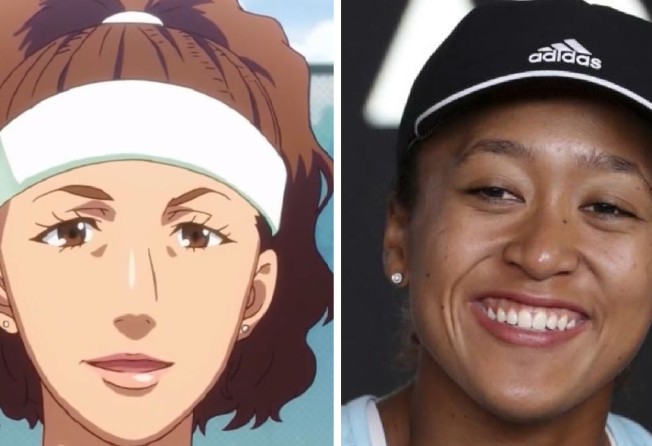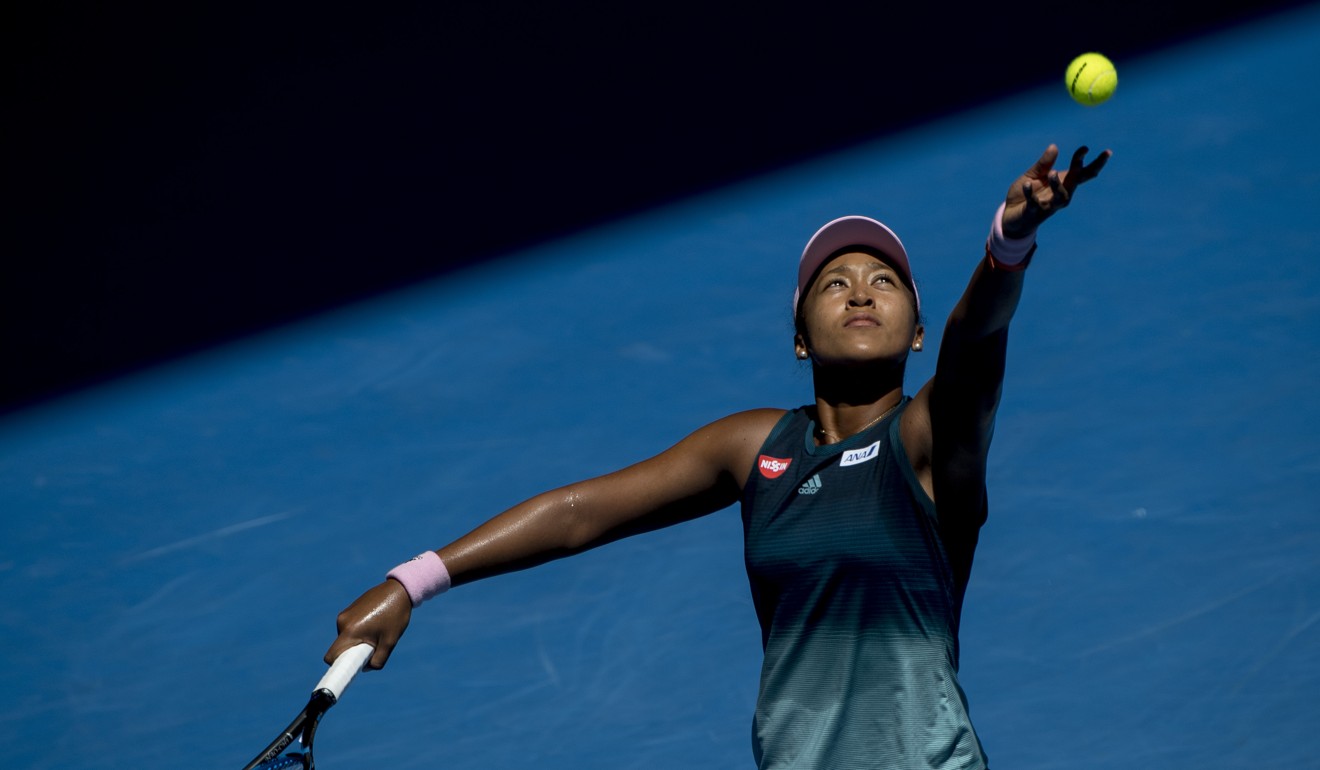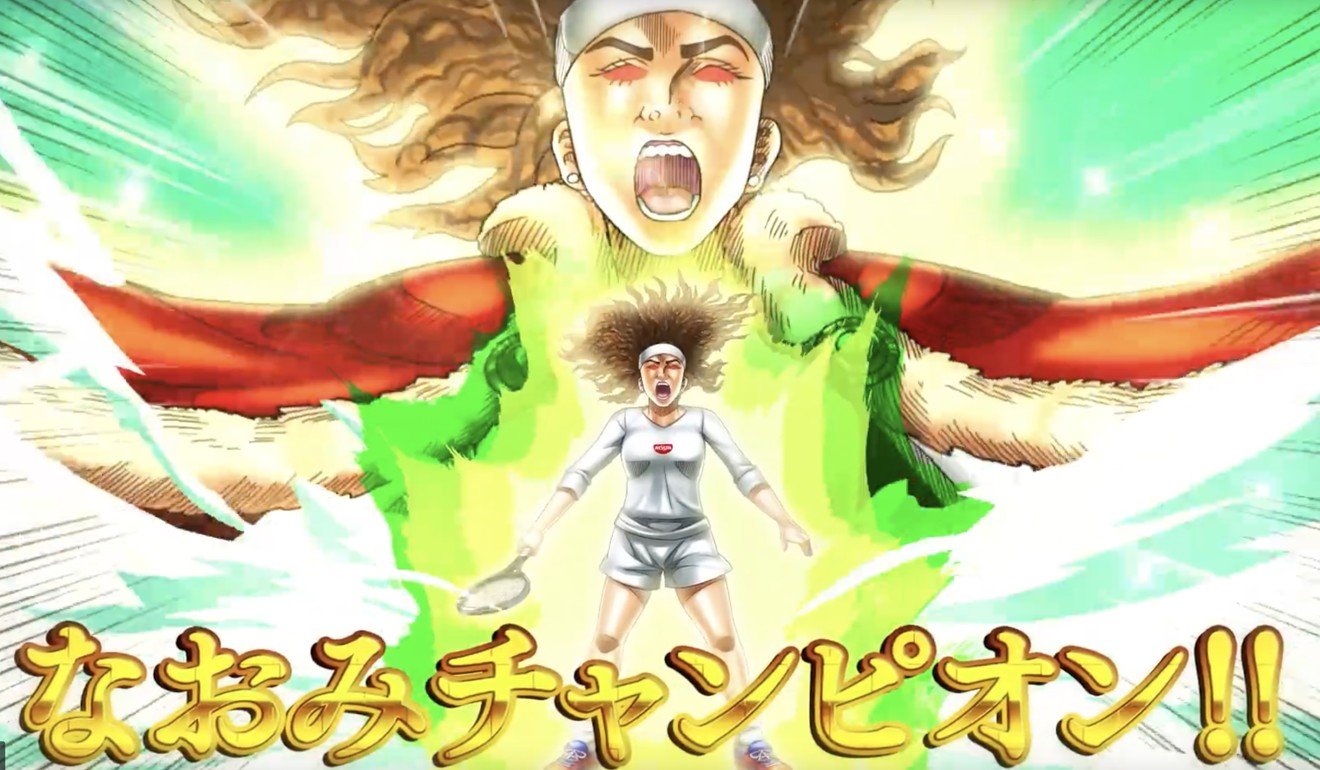
Noodle-maker Nissin apologises, withdraws ‘whitewashed’ anime ad featuring Japanese-Haitian tennis star Naomi Osaka
- Nissin promised to be ‘more mindful of the issue of diversity’, as it pulled the animation that showed Naomi Osaka with pale skin and European features

Japanese instant noodle giant Nissin has apologised to Japanese-Haitian tennis star Naomi Osaka and withdrawn an anime advertising campaign that sparked uproar for depicting her with pale skin and noticeably European features.
“I’ve talked to them. They’ve apologised,” the 21-year-old player, who was born in Japan before moving to the United States as a three-year-old, told reporters on the sidelines of the Australian Open in Melbourne.
“For me, it’s obvious, I’m tan. It’s pretty obvious. I don’t think they did it on purpose to be, like, whitewashing or anything. But I definitely think that the next time they try to portray me or something, I feel like they should talk to me about it,” she said.
A representative of the firm on Wednesday said it would be more “mindful” about diversity.

The video, which had angered many for whitewashing the US Open champion’s appearance, was no longer available on YouTube as of Wednesday evening.
The noodle-maker, which has sponsored Osaka for the past two years, has put their current ad campaign with her on indefinite hold, according to Baye McNeil, the African-American columnist for the Japan Times who first reported on the Osaka character’s unusual appearance in the advertisement.
Meanwhile, manga artist Takeshi Konomi – a Nissin collaborator and the ad’s purported designer – distanced himself from the campaign.
He tweeted an illustration of Osaka, saying: “I had nothing to do with the character design in the anime.”

In his wildly popular manga series The Prince of Tennis, the artist has previously featured characters of Asian, Caucasian and African descent.
Critics say the ad’s removal doesn’t make racism in Japan a less pertinent issue. “Nissin might consider this an embarrassment instead of an opportunity to learn something about their customers both here in Japan and around the globe,” said McNeil, adding that Osaka is among few people of colour who have fronted brands in Japan.
日清さんのご依頼で描かせて戴いた錦織・大坂・綿貫選手のイラストはジャンプSQ.2月号に掲載されてます
アニメCMのキャラクターデザインには関わっていませんよ
必殺技名の候補だけ協力させて戴き、CMやアニメイラストはカップヌードルさんのツイッターで初めて拝見しました頑張れ日本人選手‼️ pic.twitter.com/HUxDcoubAm— 許斐剛 (@konomi_takeshi) January 23, 2019
But Lisa Tanimura, a Japanese writer who specialises in diversity issues within the fashion industry, said Nissin’s gaffe would have little impact on Japanese society.
“When I read about Osaka’s whitewashing, I wondered how much this [mistake] would resonate,” she said. “Probably not much.”
I just saw that Nissin noodle ad where they drew Naomi Osaka as white to make her look ‘desirable’ and I’m disappointed but I’m 200% not surprised. Just like how they cut miles without the spider mask out from the jp commercial. Japan does not like black people. Water is wet.
— azealia (@neonfloe) January 23, 2019
She said while racial incidents are “totally wrong or immoral from a Western perspective”, Japan had far to go.
“The problem is people [in Japan] are nowhere as aware about racism as they are [abroad]. Here, they take it as English-speaking people complaining in English … I think there needs to be change.”
McNeil agreed that better awareness of diversity issues was needed.

“Pulling the ad might ease Nissin’s embarrassment in the meantime,” he said. “But if you don’t address the mindset that created the ad, you’re doomed to make the same mistakes again.”
Additional reporting by Kyodo News and Reuters